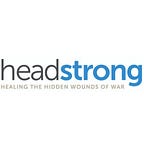‘Facing Stigma’ with Bob Woodruff
“My father was in the Army during the Korean War and my grandfather was in the Army during WWI and WWII, so I’ve always admired and respected our service men and women. Prior to the war starting in Afghanistan, I never had much of a chance to cover the military as a journalist. When it looked like we were going to be more involved with Iraq, I started making more frequent visits to the region. I was actually there twice before the invasion happened in 2003. Saddam Hussein was still in power the first two times I went, and then I went back another five times after the war started. Before my final visit to Iraq, we stopped in Israel to report on the conflict with Gaza, and then went straight up to Baghdad from there. I did a couple of stories in Baghdad for ABC before we headed out to Taji, Iraq. My co-anchor at that time was going to cover the state of the union, while I was reporting on the US military missions in Iraq. It was a perfect way to mix because that was the topic of the state of the union. I never got the chance to report on that story, because we were attacked the day before the state of the union address while getting a few last shots.
Before going out that day, we were told that an Advance Team had just swept the road minutes earlier for IEDs. I climbed into an Iraqi tank with our cameraman Doug, so that we could get some shots through the eyes of the Iraqi troops on patrol. We were standing filming the Iraqi soldier in the front of the tank, when there was a giant explosion that rocked the tank. Hidden behind some palm trees, a band of Iraqi insurgents had detonated a crude roadside bomb with a remote-controlled device. I took a direct hit to the left side of my head and upper body. The force of the blast was so strong that it crushed my skull bone, and blew me back inside the tank. Soon after that I passed out, and for more than a month I was completely unaware of anything that was happening around me. I was helicoptered out of Taji into Baghdad, then switched helicopters and was sent to Balad to be treated. I was transferred from Balad to Landstuhl, before eventually being flown into Maryland to receive treatment at Walter Reed Hospital. There were a lot of ups and downs during treatment. I dealt with depression from a mental aspect, but it was also difficult dealing with the physical part of trying to rehabilitate the brain cells to get my memory back. Some of the memories come back naturally and others I had to get back by reading, memorizing, and mental health treatment. It was a struggle but I had a lot of support from the people around me, my family, and the other soldiers who were also recovering. I was able relate to those soldiers so well, because we were all in the same boat. I was on that floor with so many others who had gone through the same thing. I didn’t realize it at the time, but that experience ended up laying the foundation for the work we’re doing today.
I don’t think a lot of people expected that I could continue on as a reporter and journalist. It’s been really nice to continue doing the same work that I’ve always been in love with. Being able to travel around the world and report on things that are rarely noticed, but are important stories that need to be told. If I had not been hit I’d be anchoring a major program and platform at ABC news, but because of it we’ve been able to do a lot of great stuff at The Bob Woodruff Foundation. We never would have had the chance to do that otherwise, and I feel so fortunate to do that. I have my family, my wife, and an amazing group over there. If there was anything good that came with getting blown up, it’s that I’ve been able to do some service for those who have served the country. I would say the greatest thing I’ve been able to do in my life, is being able to do something for others.”
